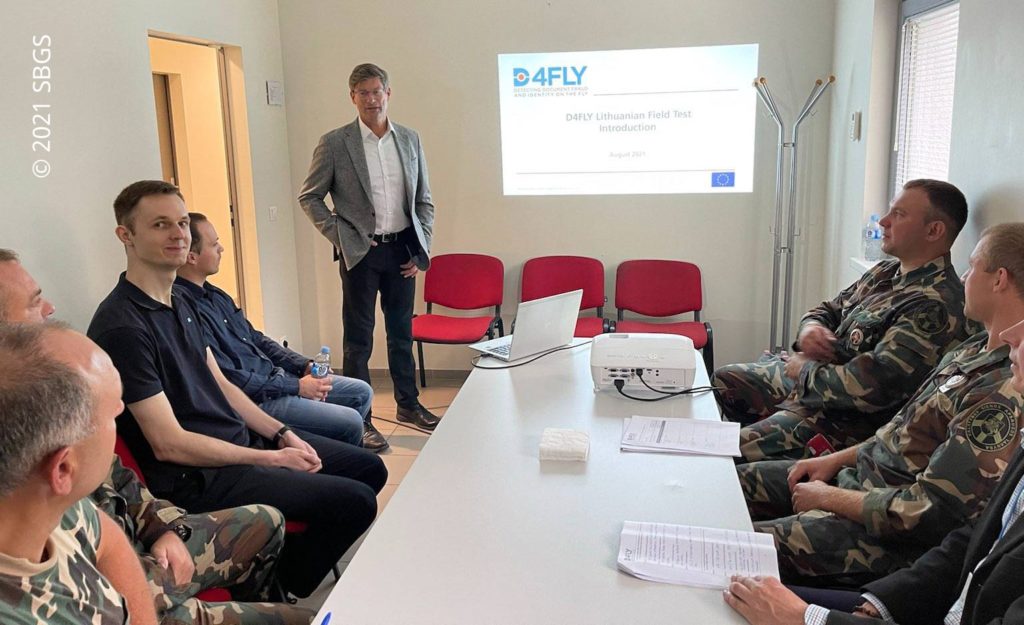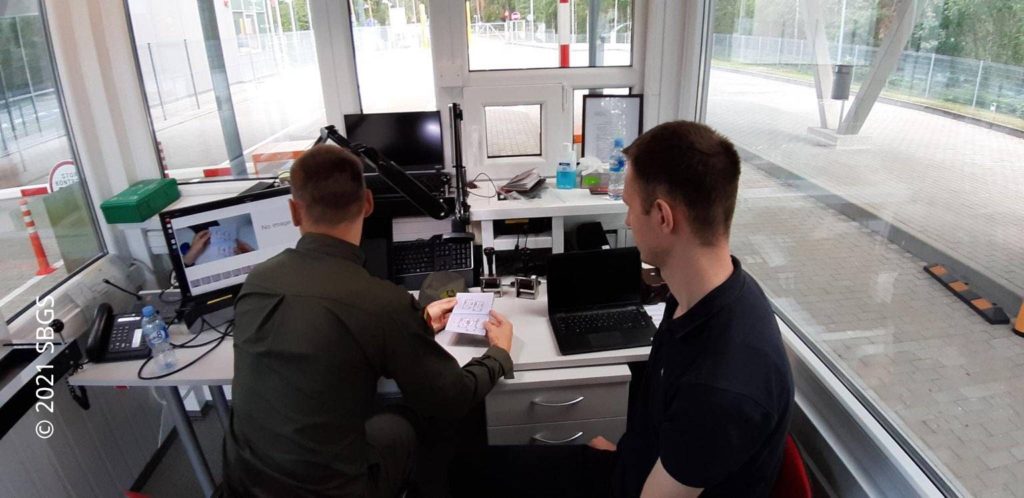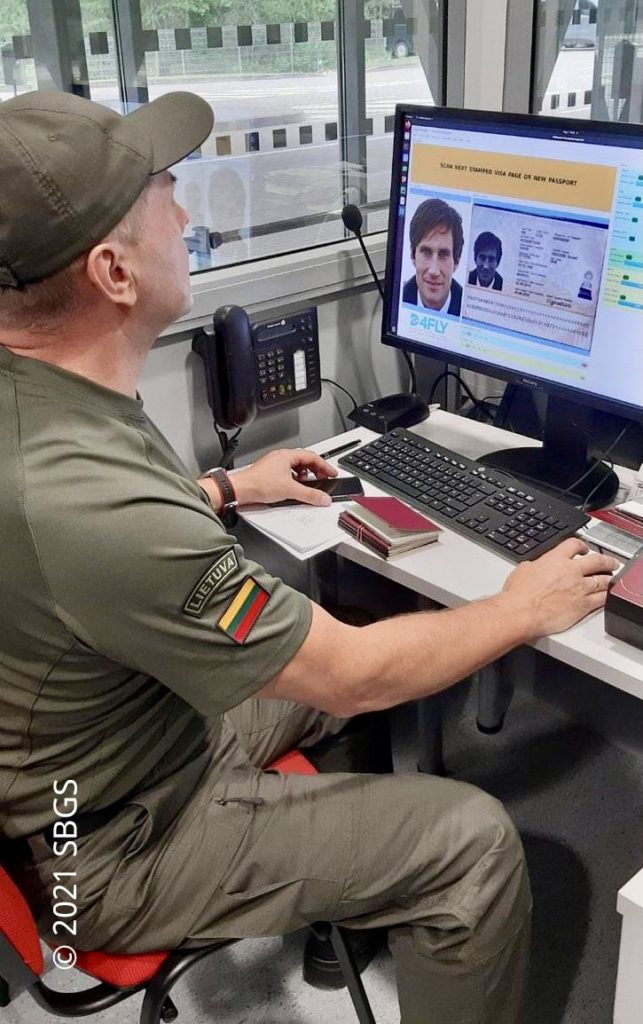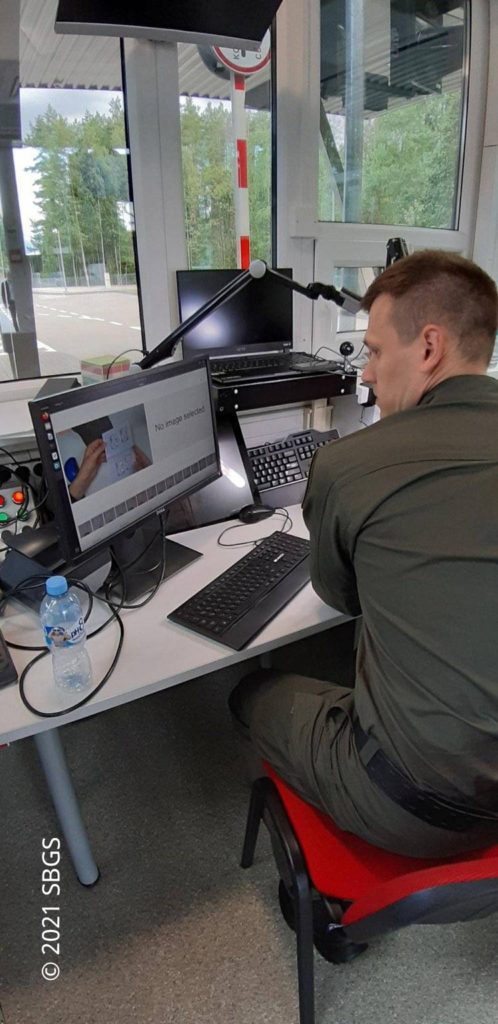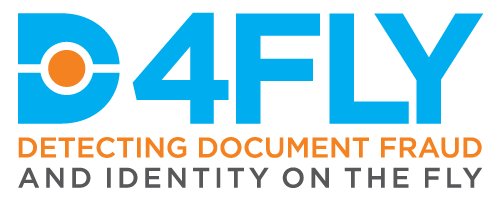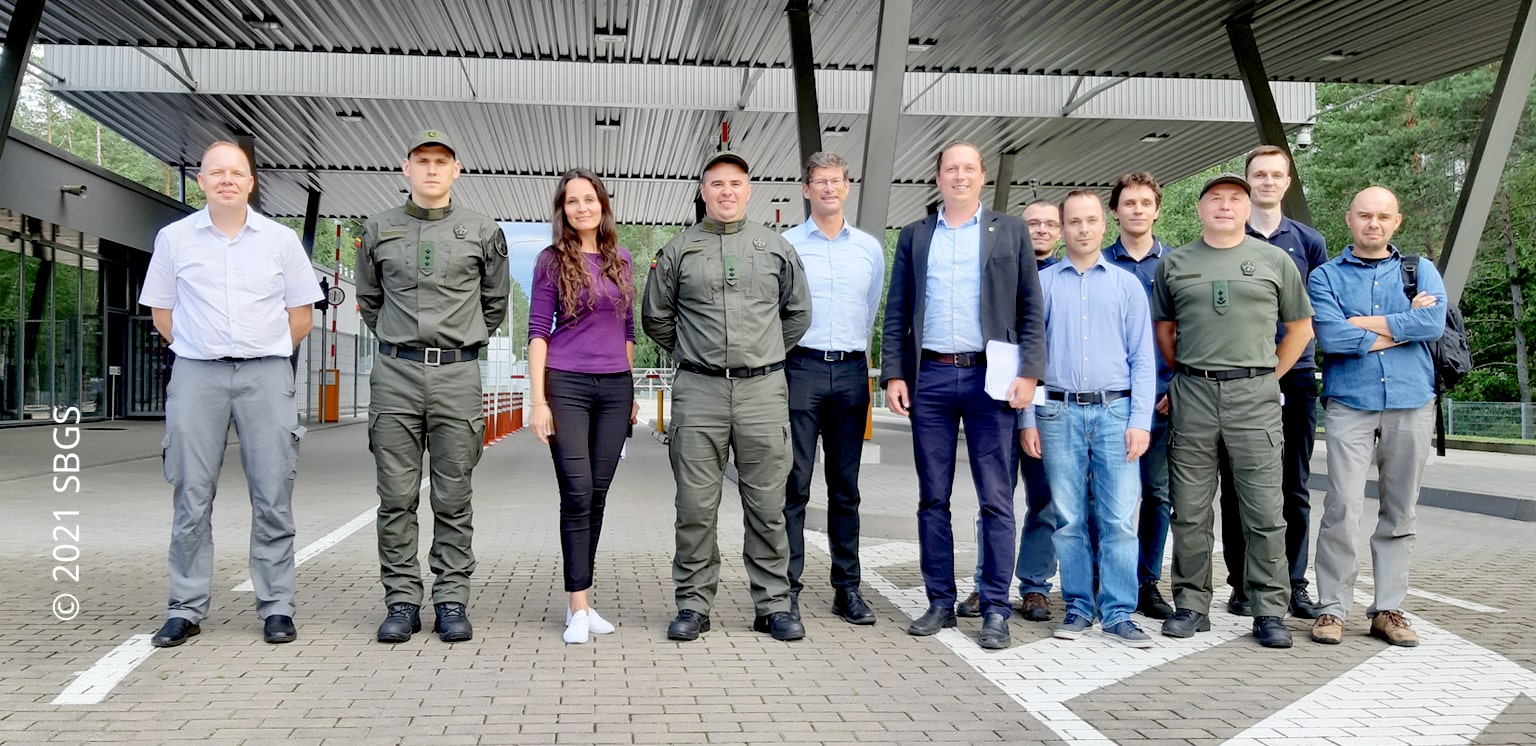On 2-4 August 2021, a field test of D4FLY innovative tools was conducted at one of the Lithuanian land border control points.
A new generation of tools for border guards, based on AI, blockchain and other technologies, enhancing the quality and efficiency of identity verification at border crossings has been developed and demonstrated by D4FLY consortium partners. Lithuania is represented in the project by the Baltic Institute of Advanced Technologies (BPTI) and the State Border Guard Service (SBGS) under the Ministry of the Interior of the Republic of Lithuania.
During the field test, Lithuanian border guards tested prototypes of the D4FLY new technological solutions, evaluated their convenience and applicability in their work, and provided feedback to the developers for proceeding with necessary updates for the next version release. The tools developed by the D4FLY consortium partners will form a unified platform that will provide faster and more secure border control solutions.
“D4FLY provides us with a unique opportunity to test novel technologies in protection of the European Union’s external borders. Many border crossing points in the EU face the challenge to speed up the border control process for travellers while ensuring high verification accuracy and security. The current situationat the Lithuanian border confirms the need for such technologies. In addition, the project strengthens international cooperation and links with research institutions working in the field of border protection,” – says Laurynas Okockis, Chief Specialist of the Bilateral Cooperation Division of the International Cooperation Board of SBGS.
An innovative travel pattern recognition solution using video analysis developed by BPTI aims to help detect violations by non-EU citizens when crossing the Schengen area border. All visa pages containing entry/exit stamps are scanned using a video camera to extract a unique travel pattern. By analyzing visa validity information and periods of stay in the Schengen area, artificial intelligence can identify irregularities on a traveller’s route.
“We are happy to be part of the project and offer our border guards solutions for innovative identity verification with a very high level of accuracy and security. Recent events on the Lithuanian-Belarusian border have shown the critical importance of border protection. It needs to be strengthened through the most effective means, both physical and technological. This is what the tools we are developing with the D4FLY consortium partners offer,” – says Dr. Tomas Žalandauskas, Director of BPTI.
Other tools evaluated in field test included document verification and detection of document fraud by assessing security features, Kinegram analysis and even printing techniques. D4FLY also explored document verification using blockchain technology as a solution that could enable border guards to review document verification history and see where and how often the document has already been checked previously. A novel approach to image processing was put to the test as well. It provides an additional image that is generated based on a face image from a passport to give another impression of the traveller to the border guard. The other image shows the same subject but with an applied ageing effect, thus supporting the border guard to detect impostor fraud cases.
Field test in Lithuania took place at one of the currently inoperative border control points, therefore real travellers crossing borders were not affected. Upcoming field tests are planned at border checkpoints in the United Kingdom, Greece, and the Netherlands.
